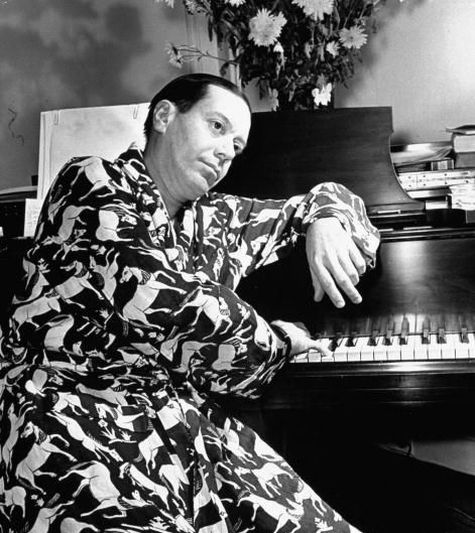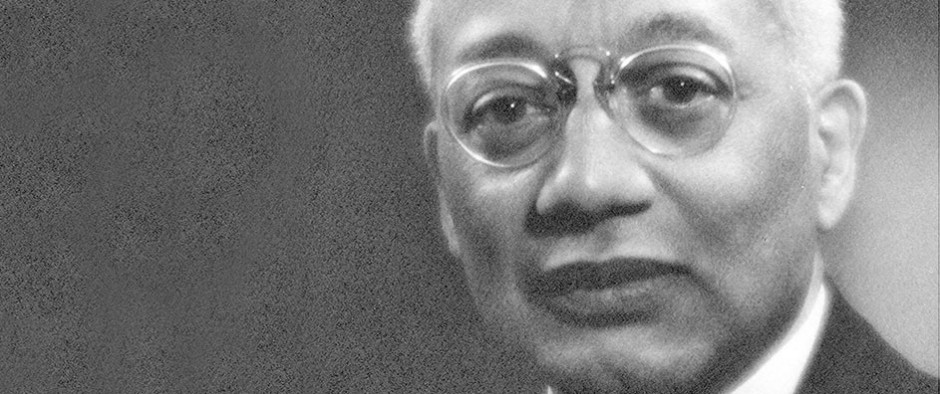|
Gay Wisdom for Daily Living brought to you by White Crane Institute ͏ ͏ ͏ ͏ ͏ ͏ ͏ ͏ ͏ ͏ ͏ ͏ ͏ ͏ ͏ ͏ ͏ ͏ ͏ ͏ ͏ ͏ ͏ ͏ ͏ ͏ ͏ ͏ ͏ ͏ ͏ ͏ ͏ ͏ ͏ ͏ ͏ ͏ ͏ ͏ ͏ ͏ ͏ ͏ ͏ ͏ ͏ ͏ ͏ ͏ ͏ ͏ ͏ ͏ ͏ ͏ ͏ ͏ ͏ ͏ ͏ ͏ ͏ ͏ ͏ ͏ ͏ ͏ ͏ ͏ ͏ ͏ ͏ ͏ ͏ ͏ ͏ ͏ ͏ ͏ ͏ ͏ ͏ ͏ ͏ ͏ ͏ ͏ ͏ ͏ ͏ ͏ ͏ ͏ ͏ ͏ ͏ ͏ ͏ ͏ ͏ ͏ ͏ ͏ ͏ ͏ ͏ ͏ ͏ ͏ ͏ ͏ ͏ ͏ ͏ ͏ ͏ ͏ ͏ ͏ ͏ ͏ ͏ ͏ ͏ ͏ ͏ ͏ ͏ ͏ ͏ ͏ ͏
|
|
||||
| This Day in Gay History | ||||
June 09Born 1891 - COLE PORTER, American composer and lyricist born (d. 1964); It was typical of the urbane song-smith to have hand-picked Cary Grant to play him in the Hollywood biopic of his life. Grant, then 42, and at the height of his attractive charms, is what Porter would have liked to look like. The film, Night and Day, is an atrocity, but fascinating to watch, not only for its lies and deliberate distortions, but for the wild pleasure of watching Grant, in early middle age, attempt to play a Yale freshman. When, with his faintly absurd Cockney accent, he composes “Night and Day” to the accompaniment of amplified raindrops and a symphony orchestra, it is a moment to treasure, excelled perhaps only by Cornell Wilde as Chopin, addressing Merle Oberon (as George Sand) as if she were the father of her country. Died 1954 - ALAIN LEROY LOCKE died on this date (b: 1885); Locke was an American, writer, educator, and patron of the arts, distinguished as the first African-American Rhodes Scholar in 1907. Locke is widely cited as the philosophical architect —the acknowledged "Dean"— of the Harlem Renaissance. On March 19, 1968, the Rev. Dr. Martin Luther King, Jr. proclaimed: "We're going to let our children know that the only philosophers that lived were not Plato and Aristotle, but W.E.B. DuBois and Alain Locke came through the universe." Alain Locke was born in Philadelphia, Pennsylvania, on September 13, 1885 to Pliny Ishmael Locke and Mary Hawkins Locke. He was the only child of a well-to-do family with significant pedigree. His mother Mary, who was a teacher, and with whom he lived until her death, incited in him his passion for education and literature. In 1902, he graduated from Central High School in Philadelphia, second in his class. He also attended Philadelphia School of Pedagogy. Locke returned to Harvard in 1916 to work on his doctoral dissertation, The Problem of Classification in the Theory of Value. In his thesis, he discusses the causes of opinions and social biases, and that these are not objectively true or false, and therefore not universal. Locke received his PhD in philosophy in 1918. Locke returned to Howard University as the chair of the department of philosophy. During this period, he began teaching the first classes on race relations, leading to his dismissal in 1925. After being reinstated in 1928, Locke remained at Howard until his retirement in 1953. Locke Hall, on the Howard campus, is named after him. In 1907, Locke graduated from Harvard University with degrees in English and philosophy, and was honored as a member of the Phi Beta Kappa Society and recipient of the prestigious Bowdoin Prize. After graduation, he was the first African-American selected as a Rhodes Scholar (and the last to be selected until 1960). At that time, Rhodes selectors did not meet candidates in person, but there is evidence that at least some selectors knew he was African-American. On arriving at Oxford, Locke was denied admission to several colleges, and several Rhodes Scholars from the American South refused to live in the same college or attend events with Locke. He was finally admitted to Hertford College, where he studied literature, philosophy, Greek, and Latin, from 1907–1910. In 1910, he attended the University of Berlin, where he studied philosophy. Locke promoted African-American artists, writers, and musicians, encouraging them to look to Africa as an inspiration for their works. He encouraged them to depict African and African-American subjects, and to draw on their history for subject material. He was the guest editor of the March 1925 issue of the periodical Survey Graphic titled "Harlem, Mecca of the New Negro", a special on Harlem and the Harlem Renaissance, which helped educate white readers about its flourishing culture. In December of that year, he expanded the issue into The New Negro, a collection of writings by African Americans, which would become one of his best known works. A landmark in black literature (later acclaimed as the "first national book" of African America), it was an instant success. Locke contributed five essays: the "Foreword", "The New Negro", "Negro Youth Speaks", "The Negro Spirituals", and "The Legacy of Ancestral Arts". Locke was Gay, and encouraged and supported other Gay African-Americans who were part of the Harlem Renaissance. However, he was not fully public in his orientation and referred to it as his point of "vulnerable/invulnerability", taken to mean an area of risk and strength in his view. Locke died at Mount Sinai Hospital, of heart disease. Howard University officials initially considered having Locke's ashes buried in a niche at Locke Hall on the Howard campus, similar to the way that Langston Hughes' ashes were interred at the Schomburg Center for Research in Black Culture in New York City in 1991. But Kurt Schmoke, the university's legal counsel, was concerned about setting a precedent that might lead to other burials at the university. After an investigation revealed no legal problems to the plan, university officials decided the remains should be buried off-site. At first, thought was given to burying Locke beside his mother, Mary Hawkins Locke. But Howard officials quickly discovered a problem: She had been interred at Columbian Harmony Cemetery in Washington, D.C., but that cemetery closed in 1959 and her remains transferred to National Harmony Memorial Park—which failed to keep track of them. (She was buried in a mass grave along with 37,000 other unclaimed remains from Columbian Harmony.) Howard University eventually decided to bury Alain Locke's remains at historic Congressional Cemetery, and African American Rhodes Scholars raised $8,000 to purchase a burial plot there. Locke was interred at Congressional Cemetery on September 13, 2014. His tombstone reads: 1885–1954 - Harlem Renaissance - Exponent of Cultural Pluralism On the back of the headstone is a nine-pointed Baha'i star (representing Locke's religious beliefs); a Zimbabwe Bird, emblem of the nation Locke adopted as a Rhodes Scholar; a lambda, symbol of the Gay Rights movement; and the logo of Phi Beta Sigma, the fraternity Locke joined. In the center of these four symbols is an Art Deco representation of an African woman's face set against the rays of the sun. This image is a simplified version of the bookplate that Harlem Renaissance painter Aaron Douglas designed for Locke. Below the bookplate image are the words "Teneo te, Africa" ("I hold you, my Africa") A new biography of Locke by Jeffrey Stewart "The New Negro: The Life of Alain Locke," was released in February 2018. Today's Gay Wisdom 2018 - Cole Porter's "You're The Top" | ||||
|
|8|O|8|O|8|O|8|O|8|O|8|O|8|O|8| Gay Wisdom for Daily Living from White Crane Institute "With the increasing commodification of gay news, views, and culture by powerful corporate interests, having a strong independent voice in our community is all the more important. White Crane is one of the last brave standouts in this bland new world... a triumph over the looming mediocrity of the mainstream Gay world." - Mark Thompson Exploring Gay Wisdom & Culture since 1989! |8|O|8|O|8|O|8|O|8|O|8|O|8|O|8| | ||||
|
|||||
|




